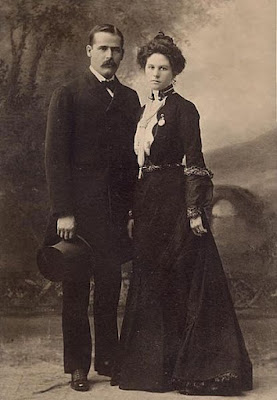 The Long Return of Butch Cassidy
The Long Return of Butch Cassidyor
"The Blues They Send to Meet Me Won't Defeat Me"
Not that it matters, but this entire movie is pure speculation.
When the outlaws "Butch Cassidy"—Robert LeRoy Parker—and "The Sundance Kid"—Harry Alonzo Longabaugh—made their way to Bolivia (as was the story) they disappeared from the face of the Earth. There've been rumors (and popular movies!) speculations, conjectures (and just plain lies), but nothing concrete—or perhaps we should say calcium—has ever turned up. No one knows where the bodies are buried, or, indeed, if there are any bodies.
That distinct lack of evidence is the spine of Blackthorn—that perhaps Butch Cassidy, aka Robert LeRoy Parker, did the exact opposite of what made him famous by abandoning the outlaw lifestyle and going legit as a rancher and horse-trader in Bolivia, running for awhile with Longbaugh and Etta, but eventually finding himself alone (the fate of The Sundance Kid is speculated on and it is an intriguing possibility), finally fading into the Bolivian clay, respectable and unsought.
Blackthorn requires a lot of the actor playing Parker or Cassidy or Blackthorn, all measures of the man, and fortunately for the film, which relishes its flat, sun-blasted landscapes (and wouldn't be nearly as interesting without so wily an actor), it's dominated by a seemingly lived-in performance by playwright Sam Shepard. Tall, rangy, sun-scorched and grizzled, his Butch is always resourceful and perpetually prepared for whatever eventuality man and Nature can throw at him. Shepard is sunk down deep in the saddle in the role, squinting at the sun and the behavior of those around him—a lone wolf on the prowl and targeted on his goal, in a path, twisted and gnarled and certainly not on the straight and narrow.
It's a good yarn, if a little too cloistered in incident and character—the spaces may be wide and open, but we keep seeing the same characters over and over— and the kid (Eduardo Noriega) being something of an irritant, and just not interesting enough to be much against the lead. Director Mateo Gil (who wrote Abre Los Oros, The Sea Inside and Agora) has a nice spare style that really pays off in the salt desert scenes, but the best thing about the film is Shepard, who breathes life into the film whenever he's on-screen.
 |
| "The Sundance Kid" and "Etta Place" before South America |




No comments:
Post a Comment